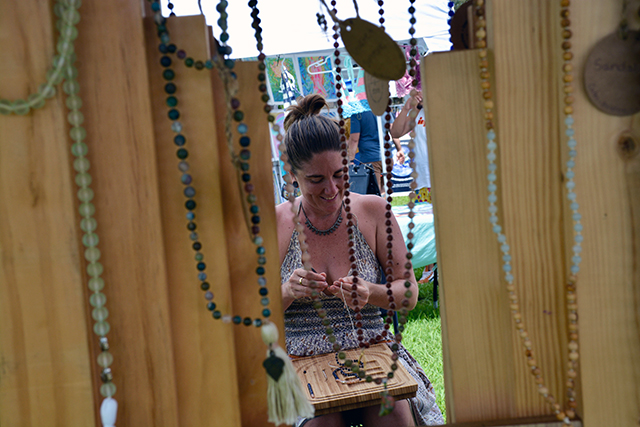“It was always intended to sustain future generations of students,” Klopf said. “The focus was innovative irrigation techniques and to create a microclimate with wind breaks, primarily with bamboo, to thermo-regulate plants protected by the canopy.”
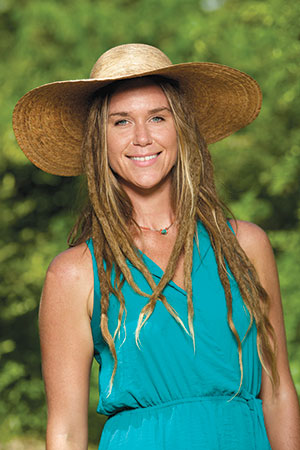
The serene space, carved out by students, faculty, staff and community, is built upon a patch of gravel on the southwest corner of campus. Nestled near the Sugden Welcome Center, it has blossomed into a lush garden of sustainable fruit trees and edible plants.
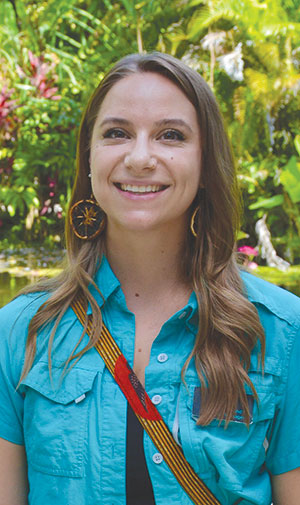
“We saw the opportunity early on for consistency and worked with campus leadership and Student Government to fund and establish a service-learning coordinator position to guide the growing methods,” said Jessica Drummond (’14, Environmental Studies). Now working at the Everglades Wonder Gardens implementing ideas from the Food Forest, Drummond has maintained close ties with FGCU, returning in 2020 to earn a master’s degree in environmental science. “Like most of us over the years, I fundamentally love that place. I’m so proud of the longevity.”
Marco Acosta dug in as Food Forest manager after graduating in fall 2020 with a bachelor’s degree in integrated studies and a minor in agribusiness, along with a permaculture certification. Spending time at the forest while studying here, Acosta has brought significant engineering knowledge with him along with a strong understanding of the complexities of plants.
‘‘It was always intended to sustain future generations of students.”
ERICA KLOPF, ’12 , FOOD FOREST DESIGNER
Standing in his favorite section under the black sapote tree, Acosta describes the forest as a powerful recruitment tool. “Prospective students see this space on their tours, and they are inspired to attend FGCU to be a part of this,” he said. “With permaculture, we’re planting for 20 years from now.”
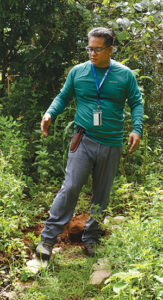
Permaculture, or the emphasis on long-term, perennial planting, ensures continued harvests with minimal effort. “The practices put in place at the Food Forest aim to create a more sustainable and forward-thinking approach to how communities grow food,” Acosta said. “When I got here, I quickly learned that it’s a special type of place, a place that takes care of its own and acts like an incubator for those who are botanically and ecologically minded.”
Many of the Food Forest alumni maintain a close network and have branched out in innovative ways to begin creative careers in agriculture.
Food forester Arlo Simonds (’17, Interdisciplinary Studies) started the Pine Manor Community Garden in a food-insecure area of Fort Myers, educating and helping families grow vegetables. “We have all passed the torch to those that come after us, continuing the rich cycle of growth,” Simonds said. “We’re all connected, generations of students that have benefited greatly from the work we’ve done at the forest. We stay in touch with each other and especially the incoming new people, to help acclimate and introduce them to the plants.”
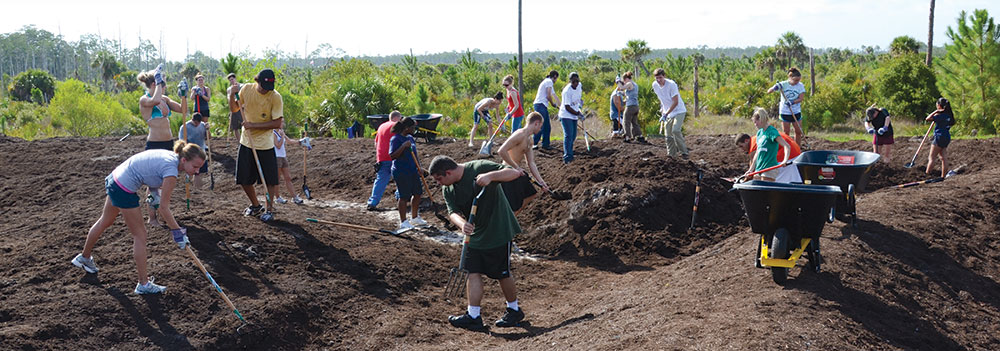
In Bonita Springs, Cecelia Morales (’17, Elementary Education) opens the gate to the wooden bridge traversing Oak Creek, revealing the way to lush greenery, fruit trees and tropical gardens at the Shangri-La Springs Resort.
“This is the garden – we’re completely organic – even more than certified organic, we work beyond that for regenerative gardening incorporating people, plants and earth,” she said.
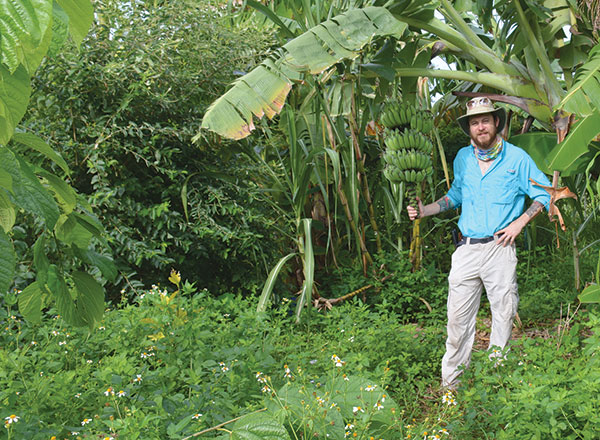
Morales, garden manager at the historic landmark resort, describes the seasonality of the greenery while snapping bits of leaves to smell or taste. “This is sweet Thai basil, this is Cuban basil, great for adding to pizza,” Morales said. “Over here, these flowers are Turk’s cap, similar to hibiscus – they taste amazing in salads.”
Morales credits her time as a service-learning coordinator at the FGCU Food Forest for broadening her perspective of plants as a profession. She briefly taught elementary school after graduation, but realized her energy was best recharged when she was outdoors and in her element.
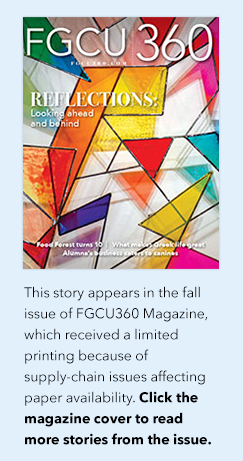 “I’ve always loved plants, but learning the intricacies of how to propagate, what is edible and how to approach organic pest control all sprouted at the FGCU Food Forest,” Morales said.
“I’ve always loved plants, but learning the intricacies of how to propagate, what is edible and how to approach organic pest control all sprouted at the FGCU Food Forest,” Morales said.
Amanda Adams (’12, Environmental Studies) continues to share her love for permaculture throughout the community. “I’m so proud of how far the Food Forest has come,” she said. After spending time working at the Shangri-La Springs garden, she recently started a small business, Seed and Stone Jewelry.
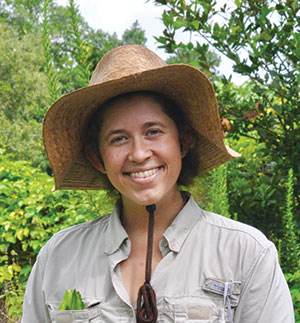
“I design and sell jewelry inspired by traditional mala beads used for meditation in Hinduism and Buddhism,” Adams said. “I incorporate my love for plants by including seeds and wood beads in the jewelry, along with semi-precious stones. The entire process of creating the Food Forest reinforced my awe and respect for plants,” Adams said. “Plants and permaculture bring people together. They brought all of the passionate Food Forest founders together, they brought an overwhelming number of volunteers and community members to us, and they continue to shape many of our lives and careers.”
Service-learning opportunities bring new FGCU students to the forest daily to maintain and harvest the garden, providing enriching experiences that often lead to more volunteerism. “Looking back over the decade, we could not have imagined it would grow to be this successful,” Klopf said. “All of the relationships and careers that have grown out of that place, it’s incredible to see.”
